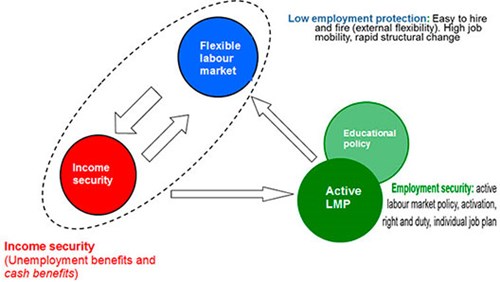The labor market in Denmark is well-known for great working conditions and job mobility. But a few sectors are facing skill shortages.
Known for active employment regulation, social welfare systems and high levels of flexibility, these 3 components constitute the Danish employee market’s ‘Flexicurity Model’. This combines features of Scandinavian welfare policies with the market economy.

Flexicurity provides job mobility and dynamic labor markets. A big reason why job mobility levels are so high is due to the lack of barriers to switching jobs. For instance, moving on to another job will not affect your holiday time or pension entitlements.
Reduced Labor Market Regulation
You’ll find that Denmark’s labor markets are mostly regulated by various collective agreements made between various social partners. What this means is that no legislation exists which regulate minimum wages.
However, the law does set some minimum requirements in a few areas. The Danish Act on Allowance for Illness or Parental Leave, the Danish Act on Equal Treatment, the Danish Employment Contract Act and the Danish Holidays Act are all examples of these regulations.
Skill shortages in some sectors
Well-qualified professionals are quite in demand when it comes to the following sectors:
- Engineering
- Health and medical services
- Life sciences
- IT
Workindenmark provides several services for bringing in and enabling the recruitment of qualified candidates for these sectors in Denmark. There are skill shortages in other sectors as well, which fluctuate based on various economic cycles.